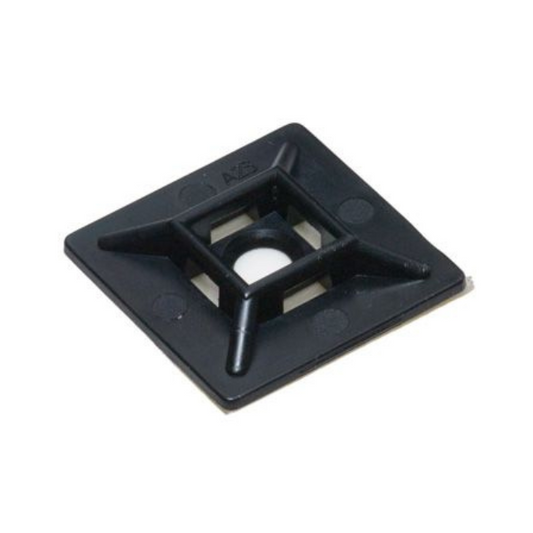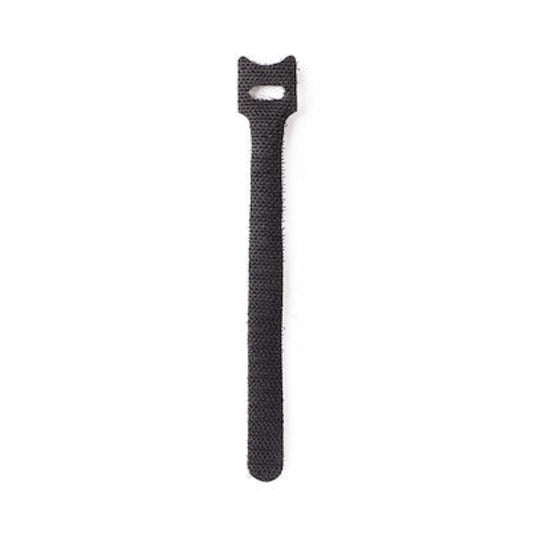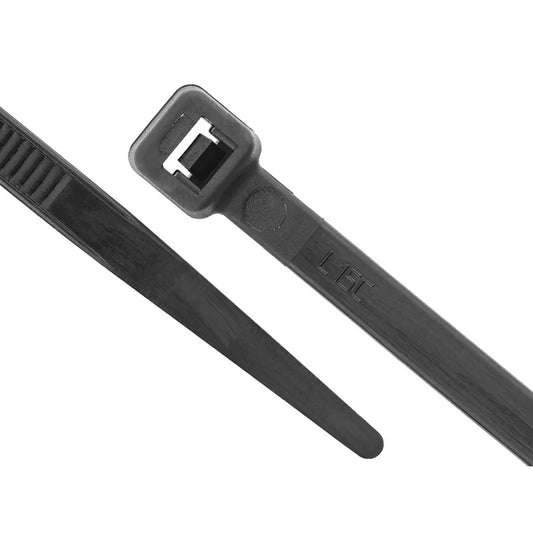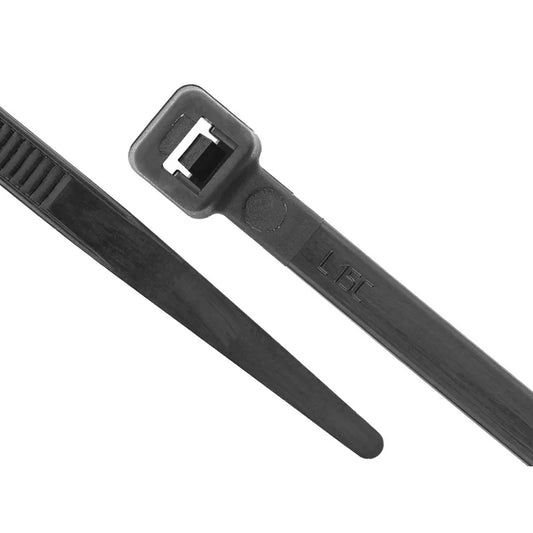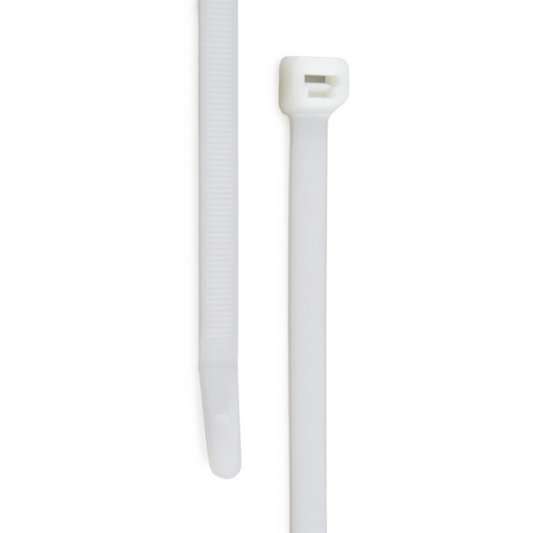When it comes to securing cables and materials in tough environments, regular plastic cable ties just don't cut it. That's where stainless steel cable ties come into play. These heavy duty fasteners are the go-to solution for professionals who need reliable, long-lasting wire management in challenging conditions.
If you've ever wondered "What are stainless steel cable ties used for?" or "When should I use steel cable ties instead of plastic ones?", you're in the right place.
What Are Stainless Steel Cable Ties?
Stainless steel cable ties are robust fastening solutions made from corrosion-resistant steel instead of plastic. Unlike their plastic counterparts, these stainless steel metal cable ties can withstand extreme temperatures, harsh chemicals, and outdoor conditions without breaking down.
While plastic cable ties work well for indoor, temporary applications, heavy duty stainless steel cable ties are engineered for permanent installations where failure isn't an option. They feature a metal band with a locking mechanism that creates an incredibly strong hold.
Stainless steel cable ties are most commonly made out of either 316 grade stainless steel or 304 stainless steel. At Grizzly Supply, we use marine grade 316 stainless steel in our stainless steel cable ties. This allows for the longest lasting fasten with the most resistance to rust and corrosion.

At Grizzly Supply, we understand that choosing the right fastening solution can make or break your project.
>> Natural Stainless Steel Cable Ties Collection <<
When Should You Choose Stainless Steel Over Plastic Cable Ties?
The question "When to use stainless steel cable ties?" comes up frequently. Here are the key situations where stainless steel cable zip ties are the better choice:
Temperature Extremes: If your application involves temperatures below 0°F or above 200°F, plastic ties will become brittle or melt. Stainless steel maintains its strength across a much wider temperature range.
Outdoor Installations: UV rays, moisture, and weather changes quickly degrade plastic ties. Cable ties stainless steel resist these elements for years without replacement.
Chemical Exposure: Industrial environments expose fasteners to acids, solvents, or other chemicals that dissolve plastic. Stainless steel provides excellent chemical resistance.
High Vibration Areas: Automotive, marine, and industrial machinery create constant vibration that can work plastic ties loose. Metal ties maintain their grip under these conditions. However, if you are worried about the ties cutting your bundle then look at coated stainless steel ties.
What Are Stainless Steel Cable Ties Used For? Top Applications
The versatility of stainless steel cable ties makes them suitable for numerous industries:
Industrial and Manufacturing
In factories, these ties secure heavy cable runs and bundle thick wire harnesses. Their strength handles the weight and stress that would snap plastic alternatives.
Marine and Offshore
Saltwater environments are incredibly harsh on materials. Heavy duty stainless steel cable ties resist corrosion from salt spray and maintain their integrity underwater.
Automotive and Transportation
Under the hood and throughout vehicle frames, these ties secure everything from brake lines to wiring harnesses. They won't melt from engine heat or crack from road vibrations.
Construction and Infrastructure
Stainless steel metal cable ties attach conduit to structural elements and secure temporary barriers. Their strength and weather resistance make them ideal for both temporary and permanent construction applications.
Food Processing and Medical
In environments requiring frequent washdowns with harsh sanitizers, these ties maintain their integrity where plastic would degrade. They're also FDA-approved for food contact applications.
>> Stainless Steel Cable Ties Collection <<
Are Stainless Steel Zip Ties Any Good? Key Benefits Explained
If you're asking "are stainless steel zip ties any good?", the answer is a resounding yes:
Advantages:
- Incredible Strength: Can handle loads that would snap plastic ties instantly
- Weather Resistance: Won't UV degrade, crack from cold, or soften from heat
- Chemical Resistance: Unaffected by most acids, bases, and solvents
- Longevity: Last for decades in applications where plastic fails in months
- Professional Appearance: Maintain a clean, finished look over time
Considerations:
- Cost: Higher upfront investment than plastic alternatives
- Conductivity: Metal construction means electrical considerations in some applications
The key is understanding when the benefits justify the investment. For critical applications where failure could be costly or dangerous, stainless steel cable ties are worth every penny.

>> Natural Stainless Steel Cable Ties Collection <<
How to Choose the Right Heavy Duty Stainless Steel Cable Ties
Selecting the proper heavy duty stainless steel cable ties involves several factors:
Load Requirements: Consider both the weight you're supporting and any dynamic forces like vibration or thermal expansion.
Environment: Will they face chemicals, salt water, extreme temperatures, or UV exposure? Different grades of stainless steel offer varying resistance levels.
Bundle Size: Measure your cable bundle diameter to ensure proper fit. Too large and the tie won't cinch properly; too small and it won't close.
Installation Tips for Long-Lasting Results
Getting the most from your stainless steel cable zip ties requires proper installation:
Always leave some slack in cable bundles to prevent stress from thermal expansion. Over-tightening can damage cables and create stress points.
Position ties away from sharp edges that could cut into cables over time. Use protective sleeves if necessary.
For permanent installations, consider using a tensioning tool to ensure consistent, appropriate tightness across all connections. Make sure the tool is rated for stainless steel ties.
Making the Right Choice for Your Project
Stainless steel cable ties represent a significant step up from plastic alternatives in terms of durability, strength, and longevity. While they require a higher initial investment, their performance in demanding applications makes them essential for professional installations.
Whether you're securing marine electronics, organizing industrial cable runs, or need reliable fastening in harsh environments, these heavy duty solutions deliver the peace of mind that comes with knowing your connections will last.
The question isn't whether stainless steel cable ties are good, it's whether you can afford not to use them in applications where reliability matters most.


